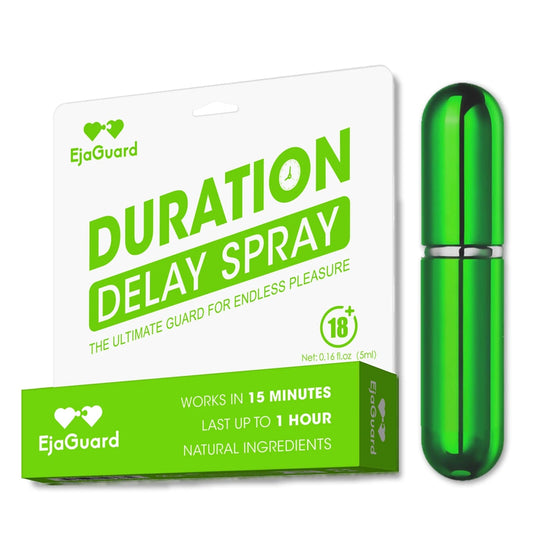Einführung
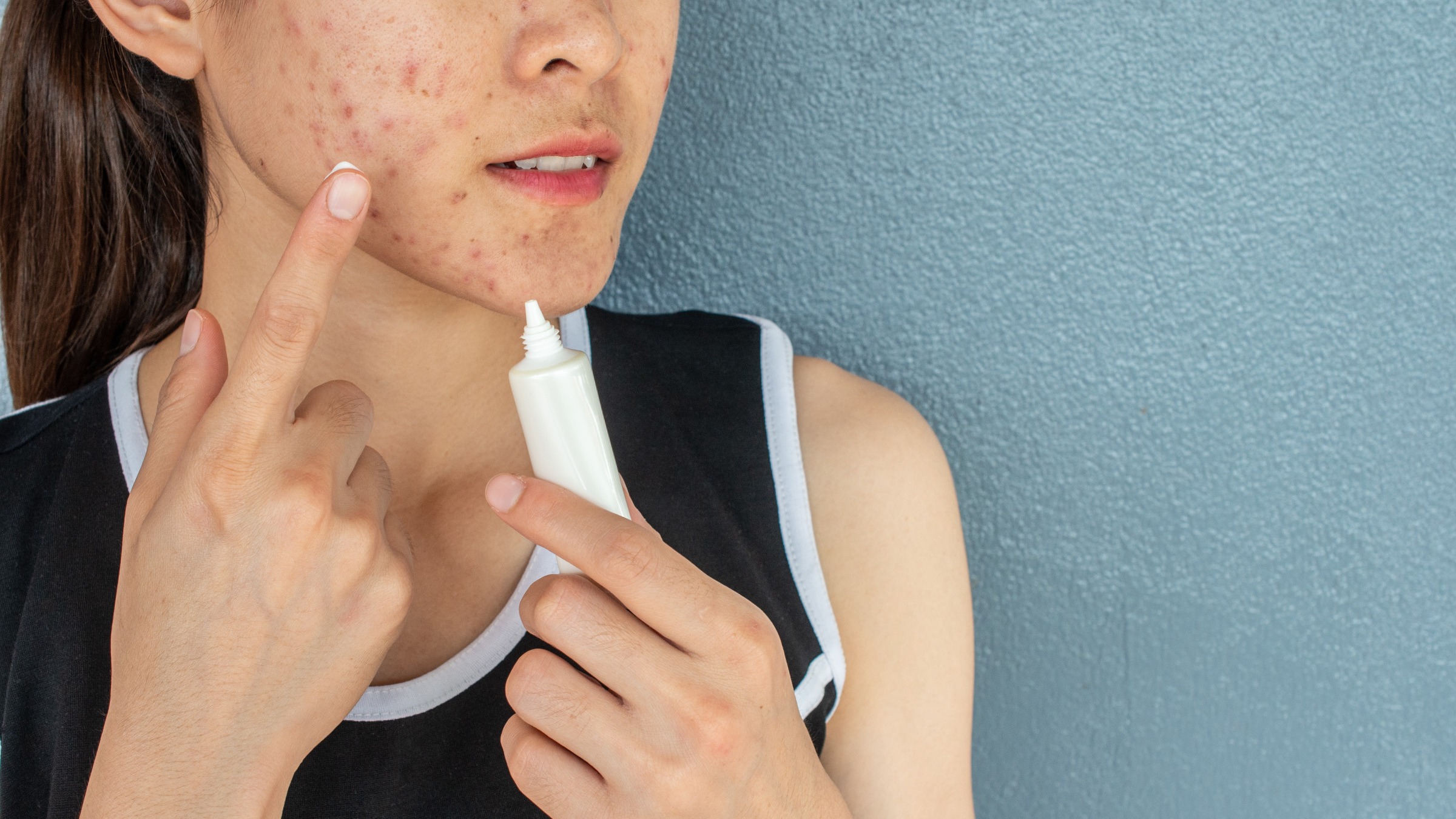
Bei Kopfhautreizungen aufgrund von Pilzinfektionen empfiehlt sich die Kombination einer medizinischen Behandlung mit den leichten, natürlichen Gleitmitteln von EjaGuard , die so formuliert sind, dass sie empfindliche Haut beruhigen, ohne die Poren zu verstopfen.
Ketoconazol ist nicht einfach nur ein weiteres rezeptfreies Produkt. Es bekämpft die Ursache von Pilzinfektionen, anstatt nur die Symptome zu lindern. Deshalb genießt es Vertrauen in der Dermatologie, der Haarpflege und sogar in der systemischen Antimykotika-Therapie.
In diesem Artikel erfahren Sie alles Wichtige über Ketoconazol – was es ist, wie es wirkt, wann es angewendet wird, mögliche Nebenwirkungen und zu beachtende Vorsichtsmaßnahmen. Ob Sie Ketoconazol-Shampoo gegen Schuppen oder Ketoconazol zum Einnehmen bei einer tieferliegenden Infektion in Betracht ziehen, dieser Ratgeber liefert Ihnen die Antworten, die Sie benötigen.
Was ist Ketoconazol?
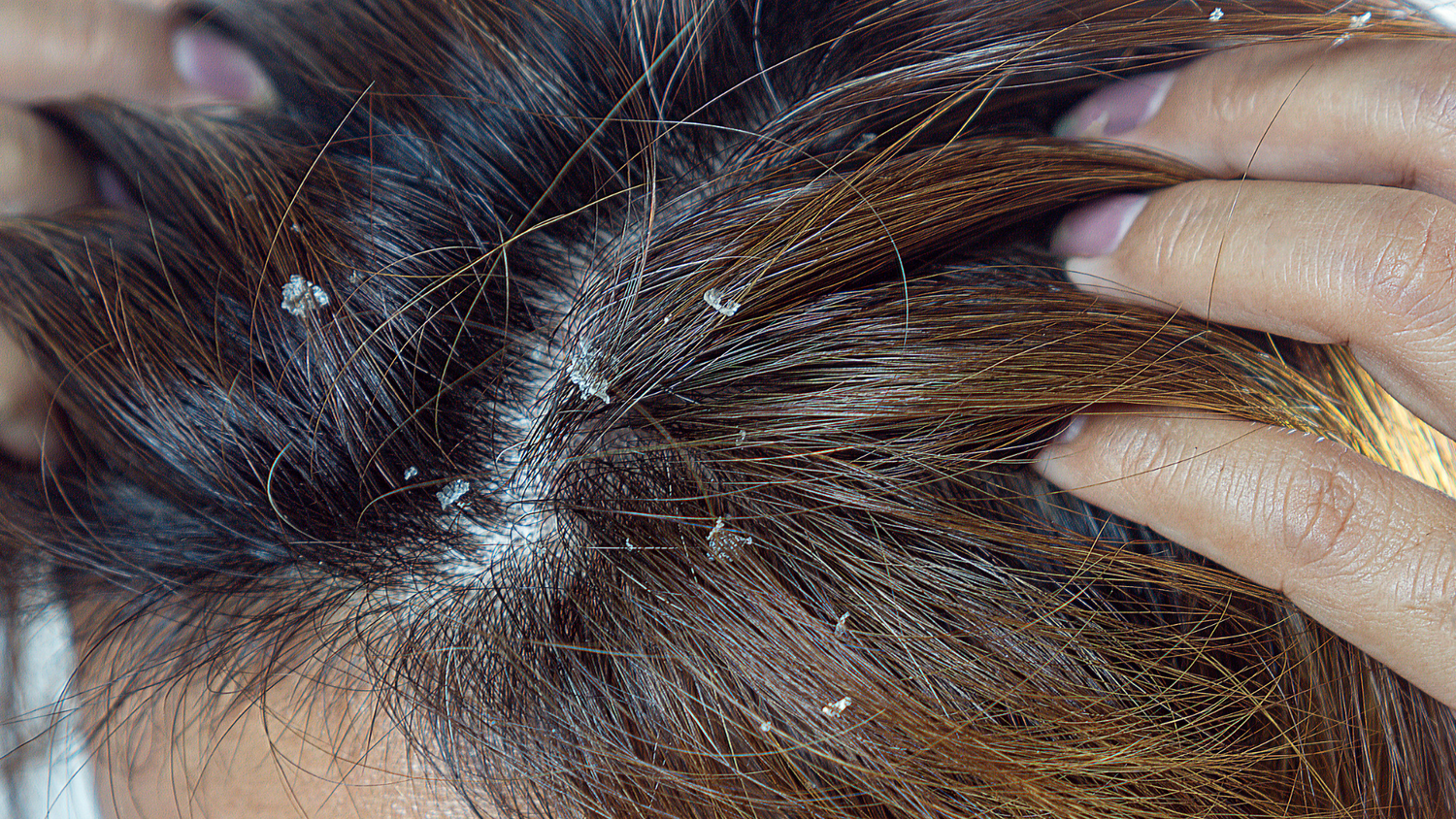
Ketoconazol ist ein Antimykotikum, das erstmals in den 1980er Jahren eingeführt wurde. Es gehört zu einer Klasse von Medikamenten, die als Azol-Antimykotika bekannt sind und zur Bekämpfung des Pilzwachstums im Körper entwickelt wurden.
Es tritt in verschiedenen Formen auf:
-
Ketoconazol-Creme – zur Anwendung bei Hautinfektionen, die durch Hefepilze oder Dermatophyten verursacht werden.
-
Ketoconazol-Shampoo – wird zur Behandlung von Schuppen, seborrhoischer Dermatitis und Pilzinfektionen der Kopfhaut eingesetzt.
-
Ketoconazol-Tabletten – werden bei schwereren systemischen Infektionen verschrieben, wenn topische Lösungen nicht ausreichen.
Im Gegensatz zu herkömmlichen Shampoos oder Hautpflegeprodukten wurde Ketoconazol speziell zur Bekämpfung von Pilzinfektionen entwickelt. Daher ist es besonders wirksam bei Erkrankungen, die auf normale Feuchtigkeitscremes, Reinigungsmittel oder Hausmittel nicht gut ansprechen.
Aufgrund seiner Wirkstärke ist Ketoconazol häufig verschreibungspflichtig, insbesondere in oraler Form. Einige topische Präparate sind jedoch je nach lokalen Bestimmungen rezeptfrei erhältlich.
Kurz gesagt, Ketoconazol ist ein vielseitiges Antimykotikum, das bei Haut-, Kopfhaut- und sogar inneren Infektionen wirkt.
Wie Ketoconazol wirkt
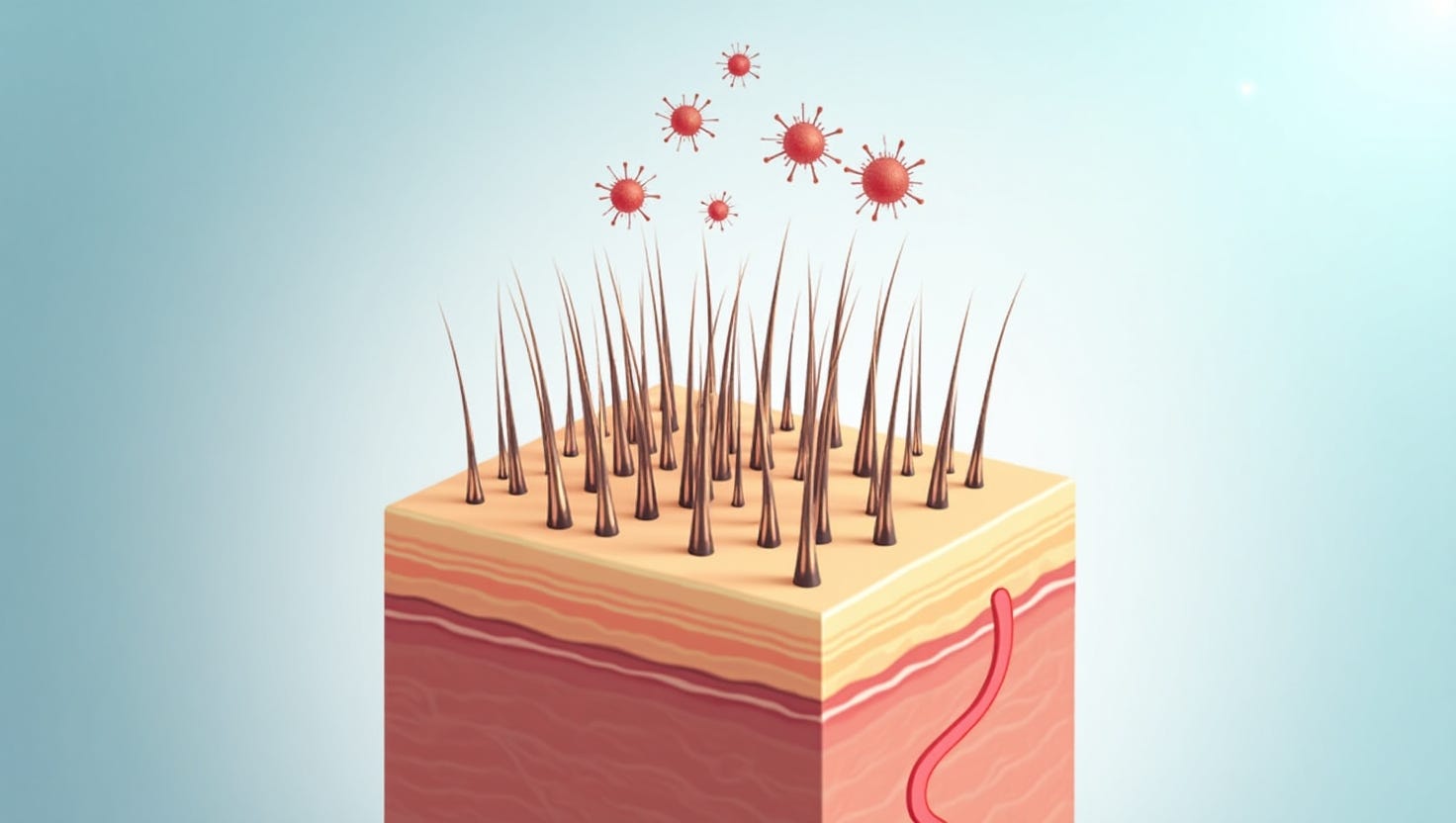
Ketoconazol hemmt das Wachstum und die Vermehrung von Pilzen. Pilze benötigen, wie Bakterien, bestimmte Bestandteile für den Aufbau ihrer Zellmembranen. Eines dieser essenziellen Elemente ist Ergosterol .
So wirkt Ketoconazol:
-
Blockiert die Ergosterolproduktion – Ohne Ergosterol werden Pilzzellen schwach.
-
Schwächt die Zellwände – Der Pilz kann seine Struktur nicht aufrechterhalten.
-
Verhindert das Pilzwachstum – Mit der Zeit heilt die Infektion ab, da die Pilze nicht mehr überleben können.
Dieser Mechanismus macht Ketoconazol wirksam gegen ein breites Spektrum von Pilzinfektionen, darunter:
-
Hefepilzinfektionen (Candida)
-
Dermatophyten (Verursacher von Fußpilz, Leistenpilz und Ringelflechte)
-
Malassezia (häufig mit Schuppen und seborrhoischer Dermatitis in Verbindung gebracht)
Im Gegensatz zu Antibiotika, die Bakterien angreifen, wirkt Ketoconazol gezielt gegen Pilze. Daher ist es gegen virale oder bakterielle Infektionen unwirksam.
Das Verständnis der Wirkungsweise von Ketoconazol hilft zu verstehen, warum Ärzte es bei chronischen oder hartnäckigen Pilzinfektionen einsetzen.
Bei Kopfhautproblemen wie Schuppenbildung und Fettansammlungen empfiehlt sich der Wechsel zwischen den reinigenden und hautfreundlichen Produkten von EjaGuard. zur Aufrechterhaltung eines gesunden pH-Werts der Kopfhaut.
Häufige Anwendungsgebiete von Ketoconazol
Ketoconazol wird zur Behandlung verschiedener Pilzinfektionen verschrieben. Seine Anwendungsgebiete lassen sich nach der Art der Infektion einteilen:
1. Hautinfektionen
-
Ringelflechte (Tinea corporis)
-
Leistenpilz (Tinea cruris)
-
Fußpilz (Tinea pedis)
-
Nagelpilzinfektionen (in einigen Fällen)
Diese Infektionen verursachen oft Juckreiz, Rötungen und Schuppenbildung, die durch Ketoconazol-Creme gelindert werden können.
2. Kopfhautprobleme
Der häufigste Grund für die Anwendung von Ketoconazol-Shampoo ist die Behandlung von Schuppen und seborrhoischer Dermatitis. Diese Kopfhauterkrankungen stehen im Zusammenhang mit einer übermäßigen Vermehrung des Hefepilzes Malassezia.
Durch die Reduzierung von Hefepilzen auf der Kopfhaut lindert Ketoconazol folgende Beschwerden:
-
Abblättern
-
Juckreiz
-
Ölablagerungen
3. Systemische Infektionen
Orales Ketoconazol wird bei schweren Pilzinfektionen wie beispielsweise folgenden verschrieben:
-
Candidiasis (Hefeinfektionen, die sich im Körper ausbreiten)
-
Histoplasmose
-
Blastomykose
Da orales Ketoconazol Leberschäden verursachen kann, wird es von Ärzten in der Regel nur dann eingesetzt, wenn andere Antimykotika nicht wirken.
4. Weitere Verwendungsmöglichkeiten
In einigen Fällen wird Ketoconazol außerhalb der zugelassenen Indikationen (Off-Label-Use) bei Erkrankungen wie Pilzakne oder im Rahmen einer Hormontherapie bei Prostatakrebs eingesetzt. Solche Anwendungen sollten jedoch stets unter ärztlicher Aufsicht erfolgen.
Insgesamt ist Ketoconazol ein Mittel der Wahl zur Behandlung von Pilzinfektionen, die von einfachen Schuppen bis hin zu lebensbedrohlichen systemischen Infektionen reichen.
Ketoconazol für Haar und Haut
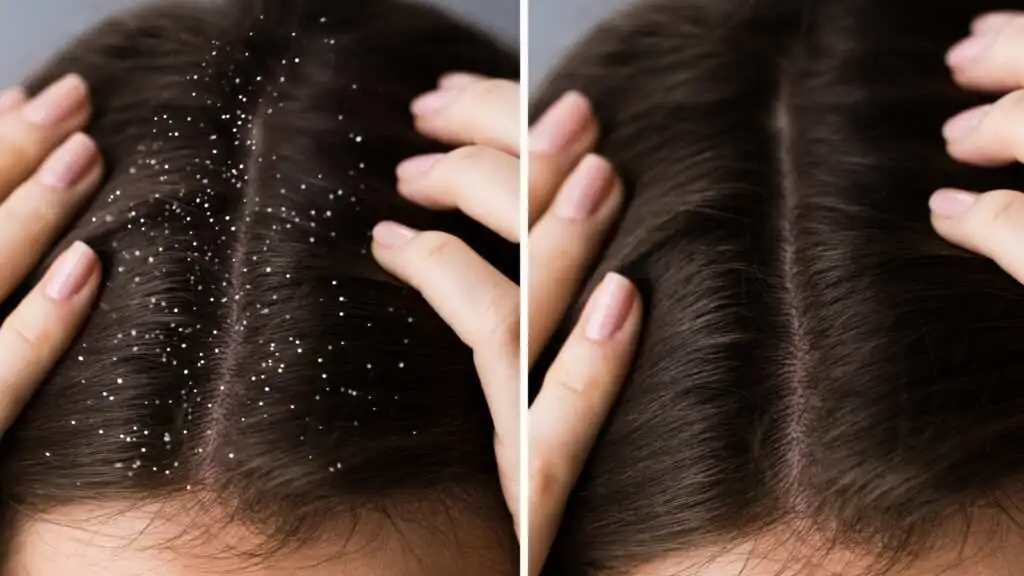
Eine der beliebtesten Anwendungen von Ketoconazol ist die Verbesserung der Haar- und Hautgesundheit.
Für Haare
-
Ketoconazol-Shampoo reduziert Schuppen und Kopfhautreizungen.
-
Es kann möglicherweise auch den Haarausfall bei Menschen mit androgenetischer Alopezie (erblich bedingtem Haarausfall bei Männern) verlangsamen. Studien deuten darauf hin, dass Ketoconazol eine milde antiandrogene Wirkung auf die Kopfhaut haben und so hormonelle Auslöser für Haarausfall reduzieren kann.
Für die Haut
-
Ketoconazol-Creme wird häufig bei Pilzakne, Ringelflechte und Hefepilzinfektionen eingesetzt.
-
Es hilft, Rötungen, Schuppenbildung und Juckreiz, die durch Pilzinfektionen verursacht werden, zu lindern.
Im Gegensatz zu herkömmlichen Haut- oder Haarpflegeprodukten bekämpft Ketoconazol den zugrunde liegenden Pilz und ist daher bei pilzbedingten Problemen wirksamer.
Für optimale Ergebnisse empfehlen viele Dermatologen, die Ketoconazol-Behandlung mit guter Hygiene, regelmäßiger Reinigung und dem Vermeiden von Reizstoffen, die das Pilzwachstum begünstigen, zu kombinieren.
Verbessern Sie Ihre Kopfhautpflege mit den Vergrößerungs- und Reparaturcremes von EjaGuard. zur Unterstützung der Follikelgesundheit.
Wie man Ketoconazol sicher anwendet

Die korrekte Anwendung von Ketoconazol hängt von der verschriebenen Darreichungsform ab:
1. Ketoconazol-Shampoo
-
Auf das nasse Haar auftragen.
-
3–5 Minuten in die Kopfhaut einmassieren.
-
Je nach Schweregrad 2-3 Mal pro Woche anwenden.
-
Gründlich ausspülen.
2. Ketoconazol-Creme
-
Reinigen und trocknen Sie die betroffene Stelle.
-
Tragen Sie ein- bis zweimal täglich eine dünne Schicht auf.
-
Setzen Sie die Anwendung über die gesamte Behandlungsdauer fort, auch wenn sich die Symptome bessern.
3. Ketoconazol-Tabletten
-
Nehmen Sie das Medikament genau so ein, wie es Ihnen Ihr Arzt verschrieben hat.
-
Vermeiden Sie Alkohol während der Behandlung, da dieser das Leberrisiko erhöhen kann.
Tipps zur sicheren Verwendung
-
Ketoconazol-Produkte sollten nicht übermäßig verwendet werden.
-
Waschen Sie sich immer die Hände vor und nach dem Auftragen von Creme oder Shampoo.
-
Befolgen Sie die ärztlichen Anweisungen bezüglich Dosierung und Dauer.
Regelmäßigkeit ist entscheidend. Das Auslassen von Anwendungen oder ein vorzeitiger Abbruch kann dazu führen, dass der Pilz zurückkehrt.
Mögliche Nebenwirkungen
Wie alle Medikamente kann auch Ketoconazol Nebenwirkungen verursachen. Diese unterscheiden sich je nachdem, ob es äußerlich angewendet oder oral eingenommen wird.
Häufige Nebenwirkungen von Creme oder Shampoo
-
Juckreiz
-
Brennendes Gefühl
-
Hauttrockenheit
-
Fettiges oder trockenes Haar (Shampoo-Anwender)
Nebenwirkungen von oralem Ketoconazol
-
Übelkeit oder Erbrechen
-
Bauchschmerzen
-
Kopfschmerzen
-
Schwere Leberschädigung (selten, aber möglich)
Allergische Reaktionen
Obwohl selten, können bei manchen Menschen Hautausschläge, Schwellungen oder Atembeschwerden auftreten. In solchen Fällen ist dringend ärztliche Hilfe erforderlich.
Da orales Ketoconazol ein höheres Risiko für Leberprobleme birgt, wird es in der Regel nur dann verschrieben, wenn sicherere Alternativen nicht wirksam sind. Ärzte überwachen üblicherweise die Leberfunktion während der Behandlung.
Ketoconazol vs. Alternativen
Ketoconazol ist nicht das einzige verfügbare Antimykotikum. Zu den gängigen Alternativen gehören:
-
Clotrimazol – wird häufig bei leichten Hefepilzinfektionen eingesetzt.
-
Miconazol – wirksam gegen Haut- und Scheidenpilzinfektionen.
-
Fluconazol – ein orales Antimykotikum zur Behandlung systemischer oder wiederkehrender Infektionen.
-
Itraconazol – wird manchmal bei Nagel- und Lungeninfektionen bevorzugt.
Vergleich von Ketoconazol
-
Wirkt stärker als die meisten topischen Antimykotika bei hartnäckigen Fällen.
-
Wirksam gegen Schuppen und seborrhoische Dermatitis, im Gegensatz zu einigen Alternativen.
-
Höheres Leberrisiko bei oraler Einnahme im Vergleich zu neueren Antimykotika.
Kurz gesagt, Ketoconazol ist hochwirksam, aber aufgrund von Sicherheitsbedenken nicht immer die erste Wahl. Ärzte entscheiden oft anhand der Art und Schwere der Infektion sowie der Krankengeschichte des Patienten.
Vorsichtsmaßnahmen und Warnhinweise
Vor der Anwendung von Ketoconazol sollten folgende Vorsichtsmaßnahmen beachtet werden:
-
Lebergesundheit – Oral eingenommenes Ketoconazol kann zu Lebertoxizität führen.
-
Schwangerschaft und Stillzeit – Bitte konsultieren Sie vor der Anwendung Ihren Arzt.
-
Wechselwirkungen mit anderen Arzneimitteln – Ketoconazol kann Wechselwirkungen mit Blutverdünnern, bestimmten Herzmedikamenten und säurereduzierenden Arzneimitteln hervorrufen.
-
Allergieanamnese – Vermeiden Sie die Anwendung, wenn Sie bereits allergische Reaktionen auf Azol-Antimykotika hatten.
Ketoconazol zum Einnehmen sollte niemals ohne ärztliche Aufsicht eingenommen werden.
Für hautpflegende Maßnahmen und verbesserte Hygiene entdecken Sie das gesamte Wellness- und Intimpflege-Sortiment von EjaGuard .
Häufig gestellte Fragen zu Ketoconazol
1. Wofür wird Ketoconazol angewendet?
Es dient zur Behandlung von Pilzinfektionen der Haut, der Kopfhaut und des Körpers. Häufige Anwendungsgebiete sind Schuppen, Ringelflechte, Fußpilz und Hefepilzinfektionen.
2. Ist Ketoconazol-Shampoo für die tägliche Anwendung geeignet?
Die Anwendung wird üblicherweise 2-3 Mal pro Woche empfohlen. Eine tägliche Anwendung ist nicht erforderlich, es sei denn, sie wird von einem Arzt verordnet.
3. Kann Ketoconazol bei Haarausfall helfen?
Einige Studien legen nahe, dass Ketoconazol-Shampoo das Haarwachstum bei Männern mit erblich bedingtem Haarausfall unterstützen kann, es sollte jedoch keine bewährten Behandlungsmethoden ersetzen.
4. Welche Nebenwirkungen hat Ketoconazol?
Leichte Reizungen, Trockenheit oder Magenbeschwerden (bei oraler Einnahme) können auftreten. In seltenen Fällen können Leberprobleme auftreten.
5. Kann ich Ketoconazol ohne Rezept kaufen?
Shampoos und Cremes sind in einigen Regionen rezeptfrei erhältlich, Tabletten hingegen benötigen in der Regel ein Rezept.
Abschluss
Ketoconazol ist ein bewährtes Antimykotikum, das bei Haut-, Kopfhaut- und systemischen Pilzinfektionen wirkt. Es ist als Creme, Shampoo und Tablette erhältlich und bekämpft Pilzinfektionen direkt an der Wurzel. Obwohl es hochwirksam ist, erfordert es aufgrund möglicher Leberrisiken, insbesondere bei oraler Einnahme, eine sorgfältige Anwendung.
Leiden Sie unter Schuppen, Pilzakne oder wiederkehrenden Hefepilzinfektionen? Dann könnte Ketoconazol die Lösung sein. Konsultieren Sie vor Behandlungsbeginn unbedingt einen Arzt oder Apotheker. Bei richtiger Anwendung kann Ketoconazol zu gesunder Haut, einer reinen Kopfhaut und einem verbesserten allgemeinen Wohlbefinden beitragen.
 Buy Now
Buy Now
